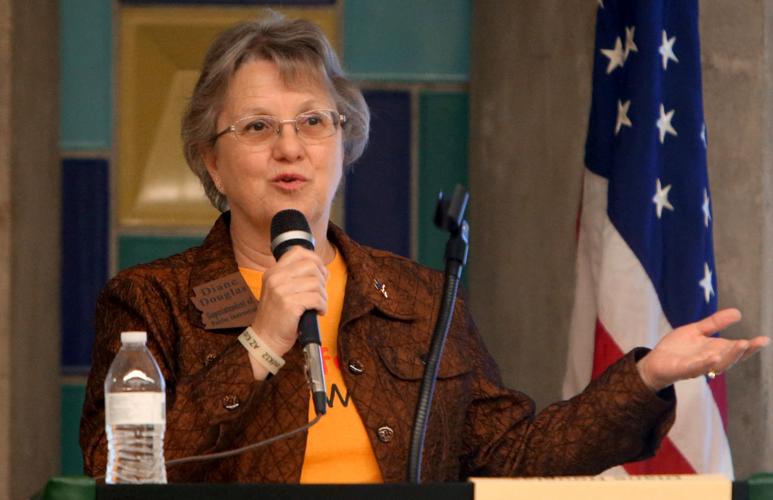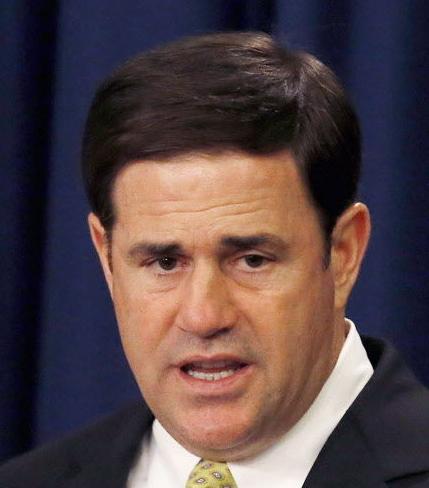PHOENIX — Arizona needs to pay teachers more to choose to remain in the profession, a panel appointed by Gov. Doug Ducey told him Wednesday.
The Classroom First Initiative Council also said special bonuses should be provided to get teachers to work in hard-to-staff schools. And members want to provide additional state dollars to schools that do a good job with underprivileged kids.
But Jim Swanson, who co-chairs the panel with the governor, said he has no idea where to get those funds.
In fact, he said, Ducey told him that the council’s job was to look at how to divide up the “pie” of dollars now flowing into classrooms and “not the size of the pie.”
Ducey said, though, he’s not concerned about the potential price tag — at least not at the moment.
“We’re going to have a larger pie,” he said after the meeting. That presumes voters in May will approve Proposition 123, which will put more than $3 billion in new funds into state aid to schools in the next decade.
He said the recommendations, which are not yet final, are part of a larger plan to make sure that money going into education is being used effectively. And that, Ducey said, does not require more dollars.
But the governor said the issue of teacher pay needs to be addressed.
“Part of that is great teachers, that those teachers feel respected, rewarded, and they’re being retained,” Ducey said.
Some of that may not require cash. One recommendation proposes a statewide public-relations campaign “to celebrate Arizona’s teachers and the positive impact they make in the lives of the students in their classroom.”
But that may not make up for data that Swanson acknowledged shows teacher pay to be far below the national average.
The plan has other proposals with financial implications, like figuring out the true cost of educating students with special needs and providing that additional aid to schools.
Then there are more radical suggestions, including having all taxpayers in all school districts pay the same tax rate, supplemented by state aid. That has implications for the ability of schools to ask voters for budget overrides.
It also could affect districts like the TucsonUnified School District that are under court orders to operate special programs, often expensive, to desegregate their schools.
State schools chief Diane Douglas, who sits on the panel, said she’s not ready to endorse them. Douglas said she wants to study them and determine the implications — especially if changes mean more money for some, potentially at the expense of others.
“I hate to use the term ‘winner’ and ‘loser,’” she said. “But that can happen when you’re talking about school funding and school finance.”
Ducey brushed aside those concerns.
“Before we try to determine who wins and who loses, the objective here should be that we’ll come out with a better K-12 system than the one we have right now,” he said.
Douglas, however, said attention needs to be paid to the details.
For example, there’s that proposal to equalize property tax rates among all school districts.
“I’m a local control fan,” she said.
“Local communities are entitled to look at their needs,” Douglas said, and tax themselves for it if they want. “How can we have people in Tucson deciding what’s best for the people in Surprise?”
The governor had asked for a final report by now. But Swanson, the chairman and chief executive of Kitchell Construction, told the governor the issues are far too complex. So he asked Ducey for another six to nine months.
Even with the extension, Ducey said he believes there are things that could be pushed when the Legislature convenes in January.







